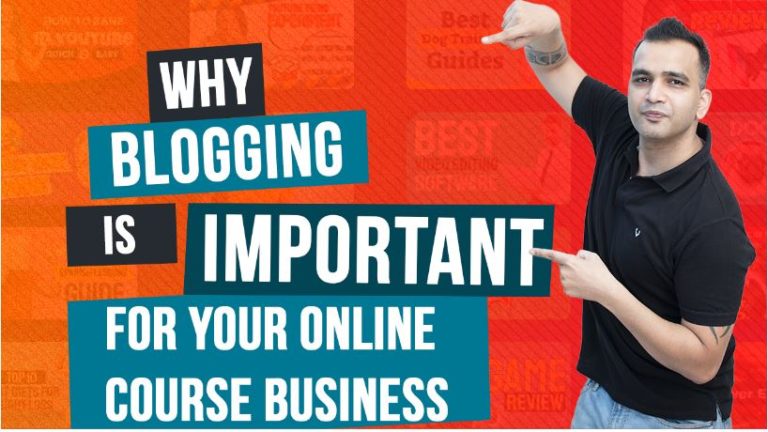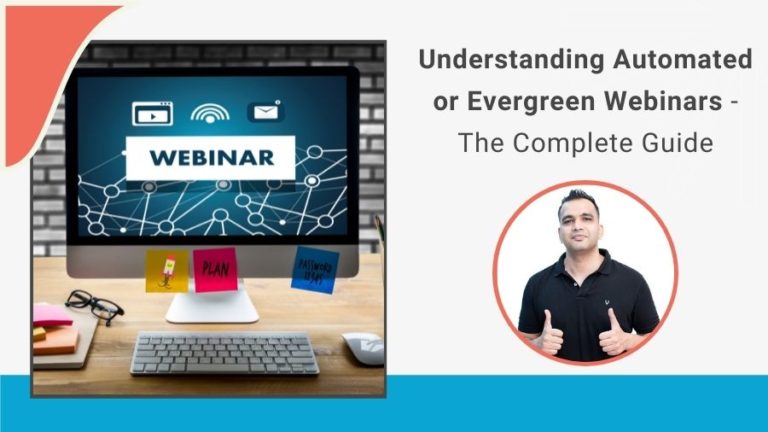The truth about SEO – Does it really matter?
Note: SEO refers to Search Engine Optimization, a cluster of techniques to rank the content higher on Google in order to get more organic traffic. If you are unaware about why it’s so essential to get organic traffic by creating content and ranking it, then I would suggest you read this article first or after you’re done reading this article. Now let’s start:
In December 2012, I was desperately looking to get hired by a company called Buzzle Software Solutions in Pune.
It was one of the most exciting companies around for a youngster since it was one of the few ones that was offering a genuine chance to become a professional full-time content writer.
The company ran a content based website called Buzzle.com (still active today), where content writers would write on every possible topic you can imagine and the website made money via Google Adsense. These type of websites are referred to as “content farms” in the digital marketing world. At that time, Buzzle was one of the most popular content farms in the whole world.
If I remember correctly, it was started by some Indian guy who was living in the US. Initially, it was formed by hiring freelance content writers from around the world but slowly they moved the primary job of creating content to the office in Pune.
I cleared the interview and started working for them.
However, all the excitement of being involved in a creative field like writing quickly dissipated since we were told that our primary job will not be writing new content but to update the existing content on the website.
But why was this the case?
23 months back in February 2011, Google had rocked the entire content industry by introducing a major change in the way its algorithm ranked websites. This change was called the Google Panda update.
I won’t get into the technical details of this update but basically the new algorithm was set up in such a way that any websites that used malicious practices like “keyword stuffing” to get ranked quickly on Google were penalized heavily and in some cases, completely removed from Google’s indexing.
At that time I was also a freelance writer on a content farm called Suite101. I remember Suite101 was entirely wiped away from Google’s rankings and had to shut down because of this update (I’m happy to see that they are doing well now).
Basically even the content writers at Buzzle had initially used some malicious practices to rank on Google and because of the Google Panda update they lost more than 75% of their traffic overnight. Since the impact of this update was so instant, any future updates to the algorithms started being termed as “Google slaps”.
But that is why we were hired. To “renovate” those poor quality articles and turn them into quality content that gave value to the reader. So that that could result in re-indexing of the articles on Google and the hope that the lost traffic would come back again.
But even then Buzzle could not be saved and the office had to be shut down in a few years.
One change in the Google algorithm brought down an entire company of 100 plus employees.
But why am I telling you all this?
Because this is the truth of SEO. The best SEO strategy you can have is to write quality content.
Let’s understand this a bit more.
When we read articles about how to implement SEO to get traffic, we often find that the article talks about a lot of technical things like keyword research, creating backlinks, etc. It’s very easy to get overwhelmed and confused by all this.
I’m here to tell you that you need not worry about all those things too much.
The number one way to make sure you rank on Google is to write quality content that is valuable for your reader.
But why is this the case?
Google always updates its search algorithms on a regular basis.
Remember the most important thing for Google is that when a user searches for a particular query in its search bar, the user should get the best and the most relevant content in the search results, not the one which has been ranked by malicious practices.
Therefore as Google has evolved its search algorithms, the number one focus has been to take the power away from the creator of the content and shift that power to the person who is consuming that content.
This means as algorithms become more refined, off-page SEO becomes more important than on-page SEO.
On-page SEO refers to practices which are in the hands of the content creator – like using keywords, optimizing them within the article, linking internal content, etc.
Off-page SEO mainly refers to how many other websites out there are linking back to the piece of content in question (called a backlink).
Google wants to give more attention to backlinks than other things because that proves that the piece of content is actually valuable because that’s the reason why other people are linking back to it from their own website. A backlink is like a vote of validation for your piece of content. It shows that your content was so good that people are sharing it.
Yes, you can get into the practice of even creating backlinks yourself but as the algorithms become smarter each day, this practice is soon getting out of fashion and rightly so.
Basically Google doesn’t want to allow you to take any shortcuts when it comes to ranking.
You want to rank on Google? You’ve got to earn it.
How do you earn it?
By writing content that people want to share and link back to.
Why will people link back to your content or share it if it is not valuable to them?
Therefore, writing such high quality content that makes people share it is the best SEO strategy these days.
Ok Kush, I understand this but how do I create high quality content?
Before I answer that, let me just point out that all this just doesn’t apply to written content but also to creating videos or any other type of content. Quality is a must for all.
Creating high quality content requires two things – Research and hard work. Here are the steps:
- First you’ve got to decide what you want to write about. You will mainly have to write about whatever your target audience struggles with and your blog article or video will have to provide a solution to that. This itself might require some research.
- Once you know the topic, the next part of the research comes in. This is the research for creating quality content. The best way to do this is to search for the topic on Google and see what the top ranking websites have written. Go through a couple of those articles and you’ll begin to get an idea of what you should include.
- Sometimes the previous step may not be required if you are already knowledgeable on that topic. But either way, your next step will be to write a comprehensive article that offers a solution that takes the reader from A (pain point) to B (solution).
That’s it! No rocket science! No SEO voodoo magic tricks!
I still use this strategy when I create my articles, video tutorials and online courses. For example, recently I created a course on how to use Canva to design images for your online business. Even though I was already good with Canva, I actually bought a paid course on Canva from Udemy, went through it, learnt more from it and created a better version of that course.
Let’s take another general example to understand why this method works. Let’s say you want to buy a new bike but you are a beginner when it comes to understanding bikes.
You spend days researching on different forums, watch review videos on YouTube, read articles, talk to knowledgeable people and finally get the hang of everything.
Let’s say you turn your new-found knowledge into a detailed article and publish it online.
Now if there’s another person who is in a similar situation to what you were earlier on and that person reads your article, you just saved that person a ton of effort because you covered all that you went through in one article.
Such a person will be grateful to you and will become your fan.
This is the methodology you want to follow when you create a blog or video. Turn your painstaking research into an easy-to-understand valuable article that changes someone’s life for the better.
Whatever niche you operate in, you can follow the example above and create quality content.
Once that content starts to get shared, you’ll find that you never needed all those crazy technical SEO things. You surpassed all those because you focused on that one thing that Google likes the most – the value and the quality!
Even a single quality article or video can bring in traffic forever to your website. That’s the power of real SEO.
I’m not saying that you should completely ignore on-page SEO.
It’s always good to include your main keywords in the title of your article or video and also make sure the main keywords are coming in the body of the article.
For example, if I’m a vlogger and I am creating a video on my trip to Bali, then it’s important that keywords like Bali, Indonesia, trip, travel, Indian vlogger, etc come in the title because people who are likely to search for such a video will be using those keywords. Using a vague title like “My awesome solo trip” will obviously hurt your rankings since it doesn’t have any of the important keywords.
Even taking this very article as an example, I know a lot of people search for “Does SEO matter?“. That’s why I included these keywords in the title of this article. That will surely help things in the long term. You can always use a tool like the Google Keyword Planner or Ubersuggest to get an idea about what people are searching for and then include those keywords.
But don’t overthink these things too much. A lot of times these keywords will naturally come in your content.
Your main focus has to be on producing quality content. Once you have created good quality content, all the other things act like complementary boosts.
To be frank, in the above vlogging example, if you created a really amazing video and already had a ready audience who consumed it quickly, even a video with that inferior title can outperform a video with an optimized title but poor content.
Why? Again because people will engage more with quality content and that will send the right signals to search algorithms.
For example, another metric that Google’s algorithms pay a lot of attention to is the duration for which people consumed your content. In a YouTube video, that means for how long did the viewer watch the video. In an article/website content, it means how much time did the reader spend on the website.
The longer the user watches/reads your content, the better for your ranking because again it’s a sign of high quality content and that’s what Google wants.
So next time you sit down to create a piece of content, focus on one and only one question – How can I produce this piece of content in such a way that it will solve the problem for my target audience for which they are looking solutions for?
If your content solves something for your target user, you would have won a major part of the SEO battle.
Remember, always think long term.
Never ever use black-hat SEO techniques (malicious practices) which promise quick rankings because they will ultimately come back to bite you.
There is no point in gaining in the short term because the evolution of digital marketing cares about only one thing – high quality content!
Let me know your thoughts in the comments below.








so is there a free version for this
That will surely help things in the long term. You can always use a tool like the Google Keyword Planner or Ubersuggest to get an idea about what people are searching for and then include those keywords.
Yes, Google Keyword Planner is free. You need to create a Google Ads account to access it. Ubersuggest allows you 3 free searches daily if you are using a free account.
A good article, keep up the good work!
I feel the below points are helpful in SEO:
– Use of Infographics images
– Use of Youtube videos link (people stay on the page for more time)
– Image Name and Alt description with keywords
– Internal links to other articles
Thanks Indrazith! Yes, those are some good points!
absolutely loved it , keep posting on these topics related to digital marketing
Thanks Suv! Glad you liked it!
Good article. It’s quality that matters.
Thanks Umesh. Thats true.
a valid inputs for content creators .
Keep in mind ‘ quality content ‘….
tks…
You’re welcome!
Thank you sir jee, I have also become fan of you, Aab to Dusre Ka article Padhna hi Chhor diya hai.
Thank you Sudhanshu for the encouraging comment 🙂
Yes, it has got high quality valuable content. Thanks for sharing.
You’re welcome!